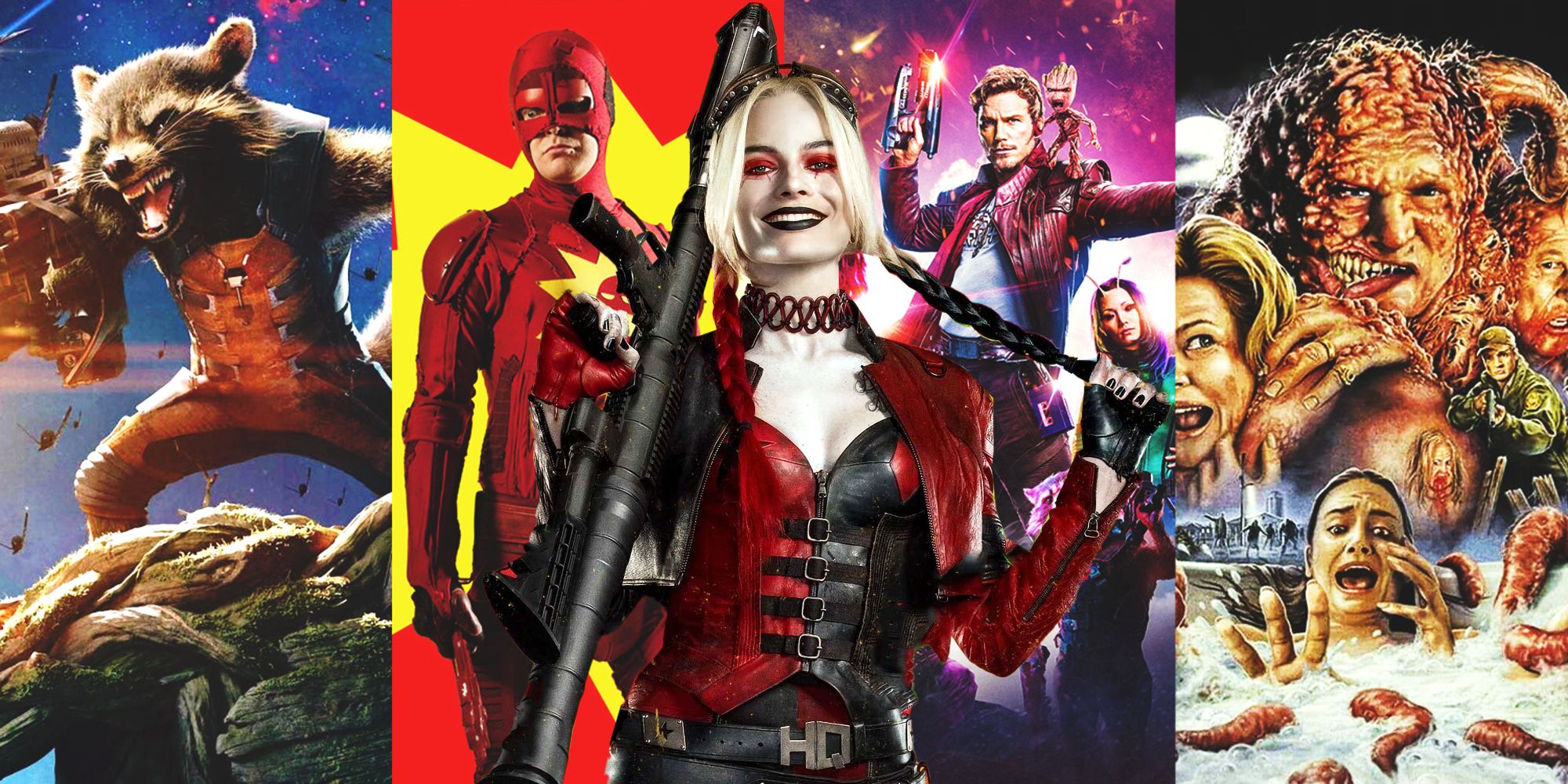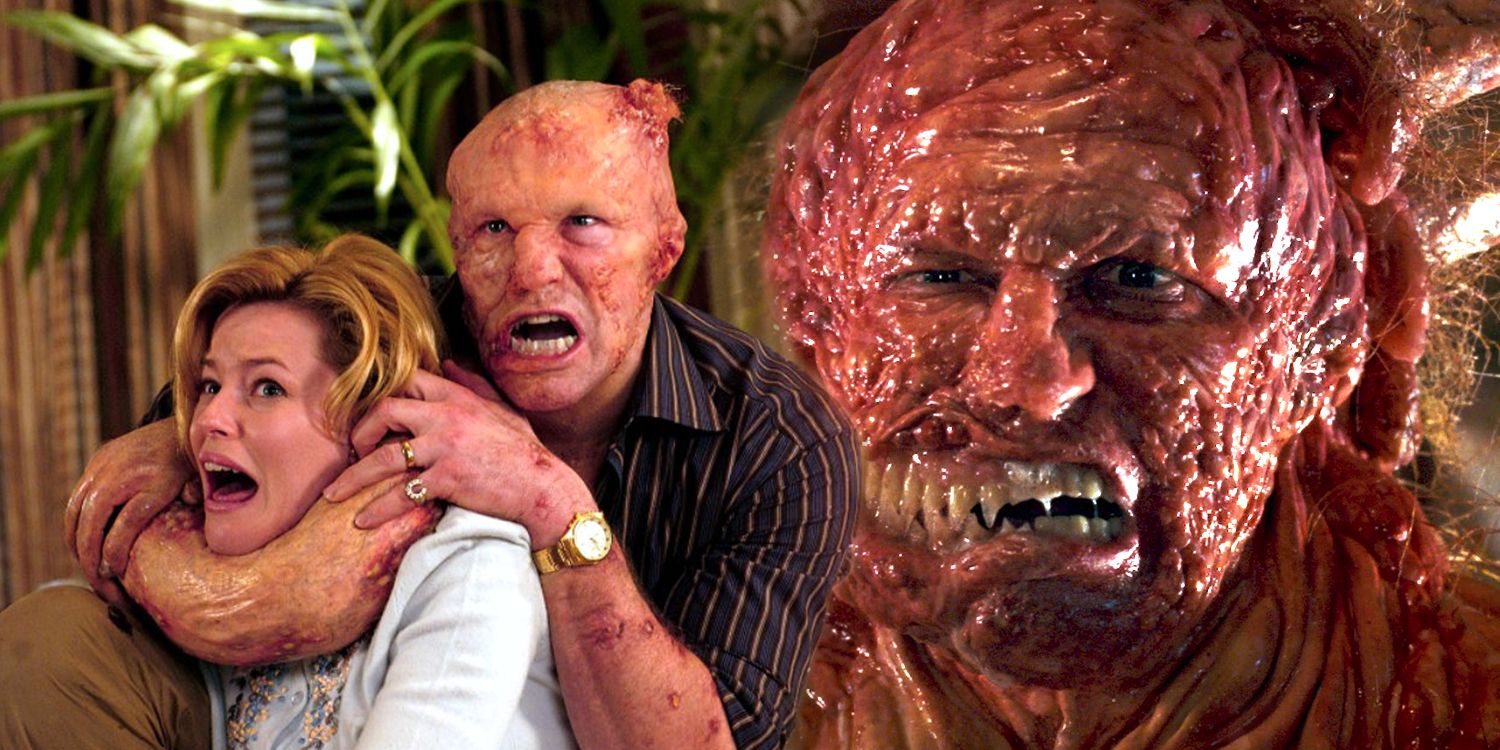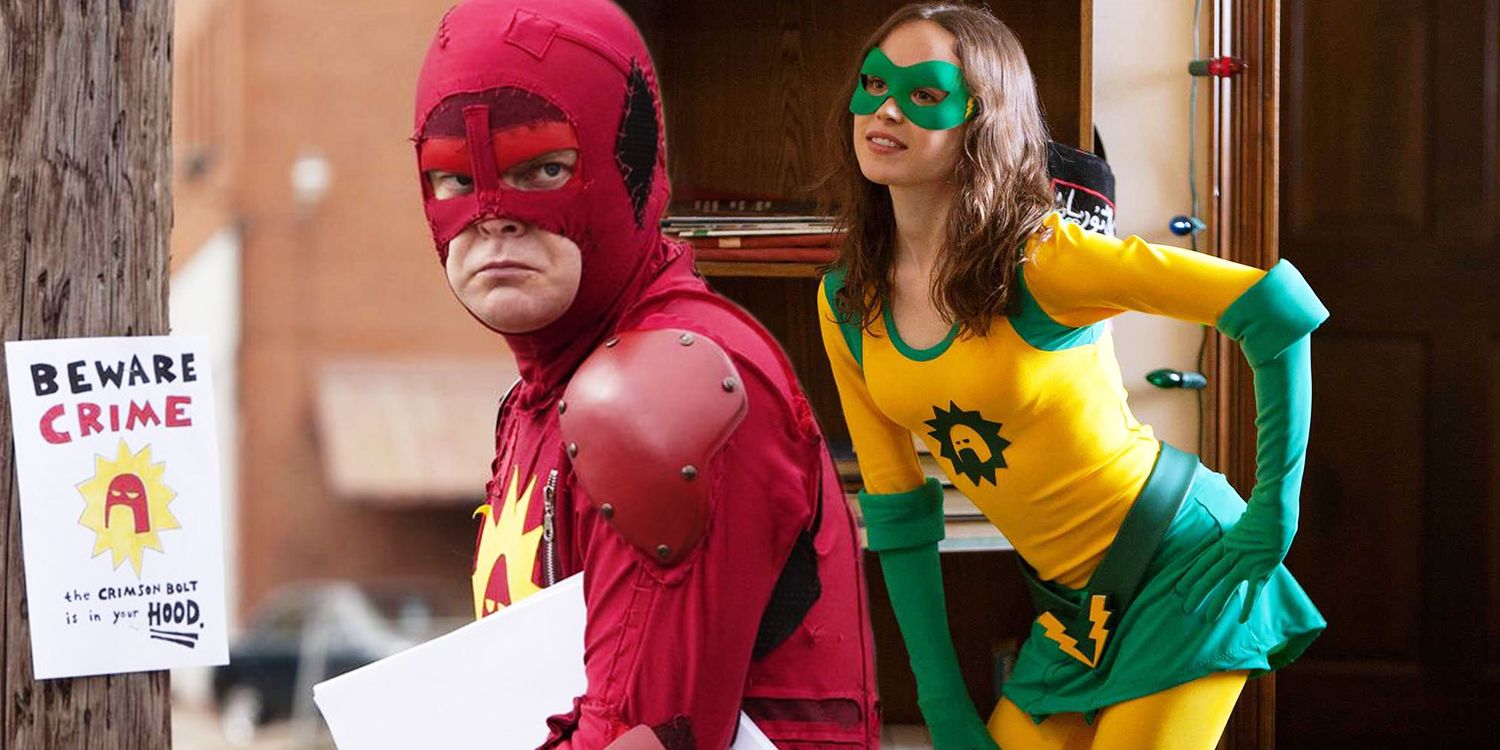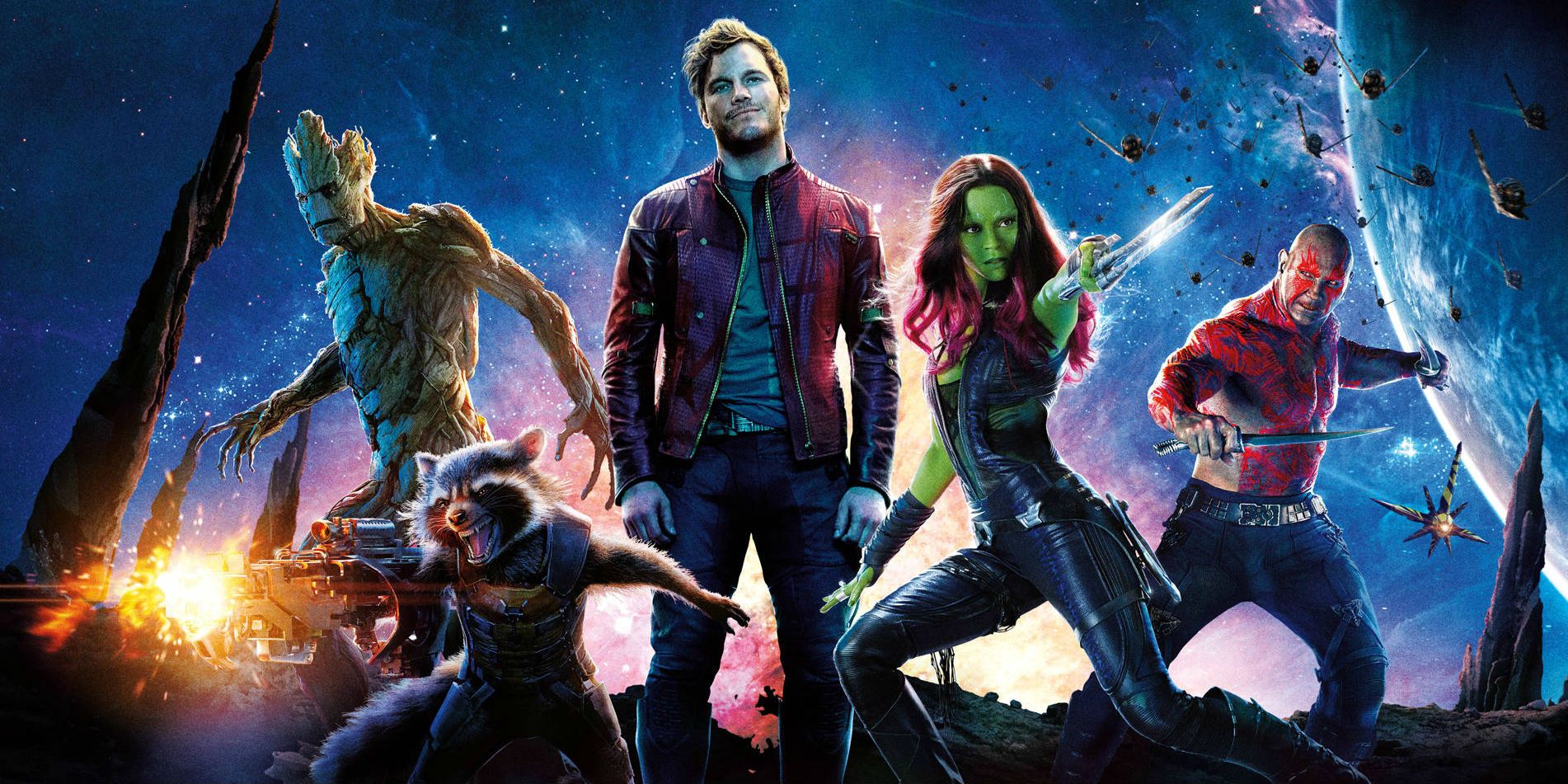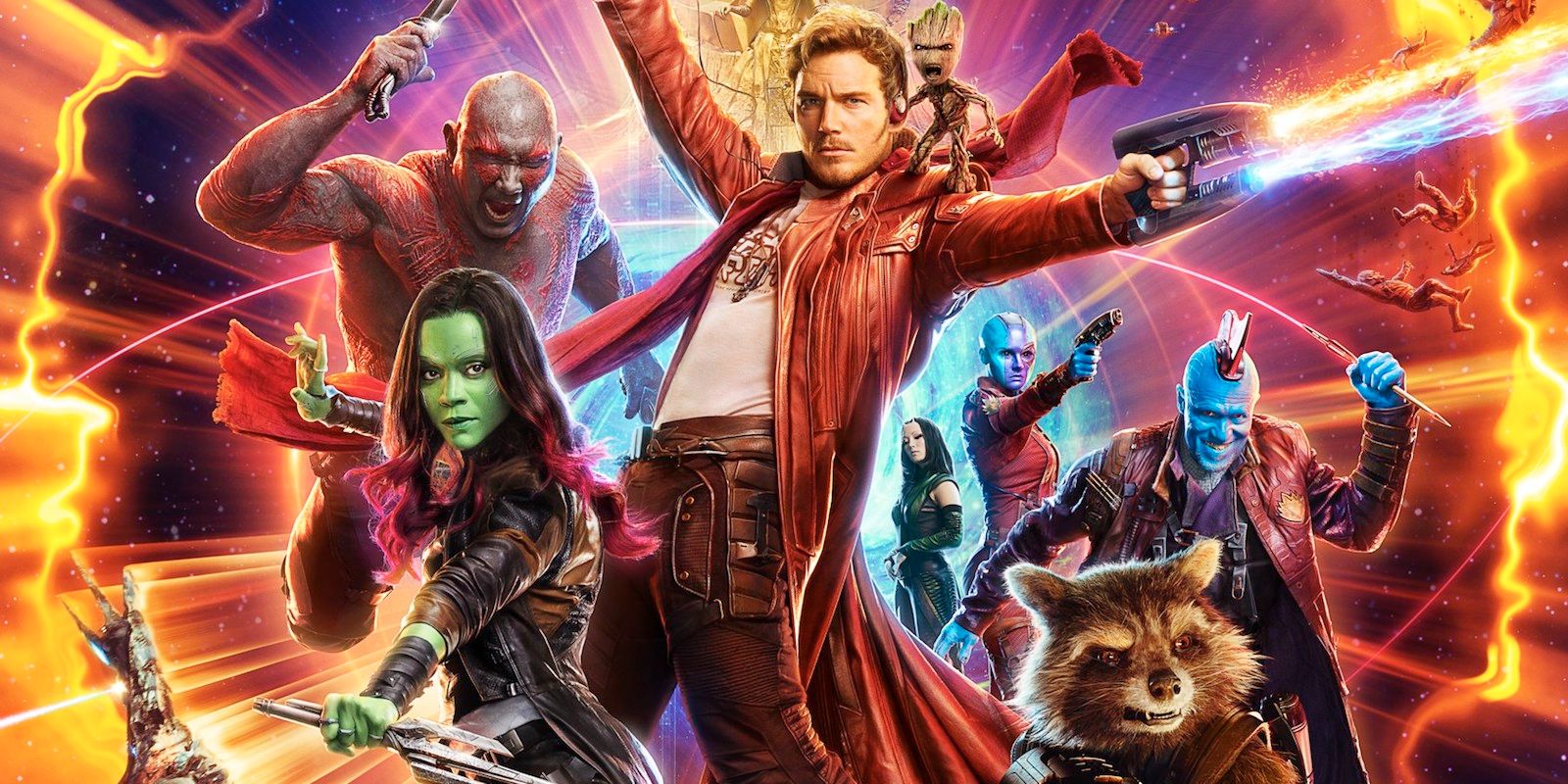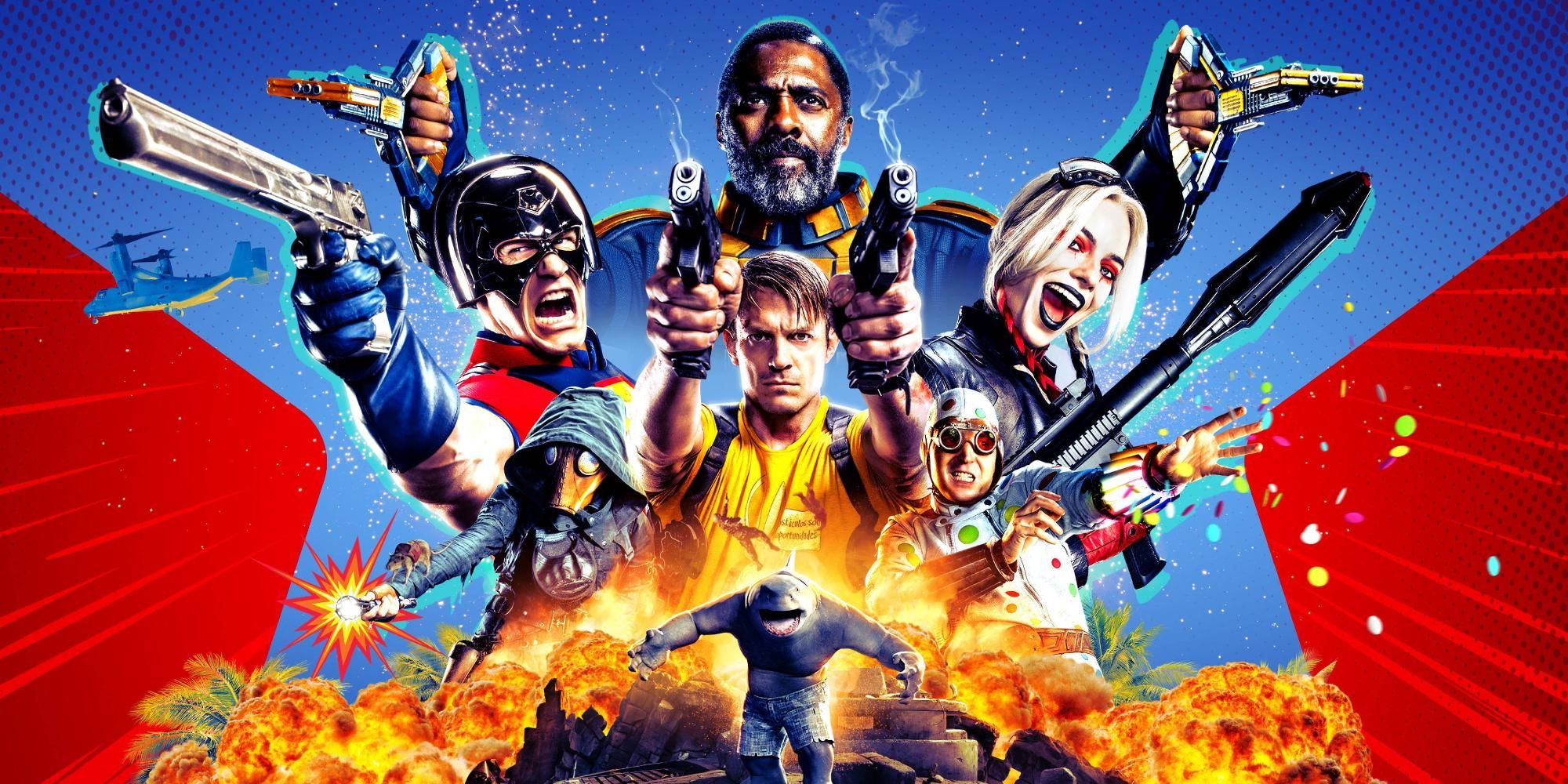Marvel Director James Gunn's movies are unique, humorous, and at times gross — but how do they rank, from worst to best? James Gunn is most notably known for directing the Guardians of the Galaxy movies in the Marvel Cinematic Universe and The Suicide Squad in the DC Extended Universe, but the comic book blockbusters weren't the result of a fleeting stroke of good luck. Gunn has been building a steady career with several successful films over the years, although only five of them make up his feature-length filmography as a director.
Moved by his love of low-budget horror films, Gunn started developing his filmmaking chops with amateur zombie films at only twelve years old. Throughout the years, he dove into writing and soon joined The Toxic Avenger director Lloyd Kaufman's production company Troma Entertainment, where he wrote his first dark comedy Tromeo and Juliet. He then continued to feed his idiosyncratic sense of humor into the scripts of films like the live-action Scooby-Doo movies and The Specials — which was his first dip into the world of superhero cinema. Gunn proclaims Scooby-Doo prepared him to direct Guardians of the Galaxy, and it's easy to see how his wacky Mystery Inc. resembles a prototype for the galaxy's most famous team of "a-holes." Returning to his horror roots, Gunn wrote Zack Snyder's directorial debut, the 2004 Dawn of the Dead remake, and came back as a writer and producer for The Belko Experiment in 2016. He has also directed projects for TV and the web and he's responsible for one of Movie 43's weirdest segments, Beezel.
James Gunn is now a highly-requested writer, director, and producer with ties to the biggest studios and some of the most successful franchises in Hollywood. Although he has only directed five theatrical features so far, his remarkable track record of eccentric films has defined his style in the industry. Here's how his directorial efforts on the big screen stack up.
Slither
James Gunn hit the ground running with his directorial debut in 2006. As a lifelong fan of horror, he drew inspiration from classic films of the body horror subgenre, such as John Carpenter's The Thing and David Cronenberg's Shivers, and injected his own twisted sense of humor into the mix; the result is a disgustingly terrifying B-movie with the production value of a full-blown Hollywood release. In the first of many collaborations with the director, Michael Rooker stars as Grant, a small-town businessman who gets infected by an alien egg and transforms into an insatiable monster that infects the whole town. Slither also includes The Office's Jenna Fischer and Firefly's Nathan Fillion at their weirdest in a story that doesn't hold back on its cheesiness and cranks its yuck factor up to eleven. One of the main highlights of the movie is that, unlike Freddy Krueger or Michael Myers, the monster doesn't mind being seen, which makes it even creepier and unpredictable.
Slither finds the right balance between horror and comedy, but non-horror fans might feel confused at some points. Those who expect the silent suspense of Alien will be as disappointed as those who expect a full deconstruction of the genre. By the point Grant reveals his chest wound to Brenda (Brenda James) right before he turns her into a bloated sack of larvae, it's clear that this is not a film for everyone. The scenes in which Grant forces himself on his victims are painful to watch, and, although the extensive use of practical effects has aged magnificently, some visual effects can take the viewer out of the moment. James Gunn's homage to The Thing and a myriad of other references to his horror muses are a joy to behold, but Slither could easily turn a movie night sour if shown to the wrong audience.
Super
Super is by far James Gunn's darkest ode to superheroes. In it, The Office's Rainn Wilson stars as Frank Darbo, a lonely man who takes up the mantle of The Crimson Bolt after his wife Sarah (Liv Tyler) leaves him for a strip club owner, Jacques (Kevin Bacon). With no wealth or superpowers to speak of, Frank goes about his daily life beating up criminals and imprudent people with a wrench and signing off with his catchphrase "shut up, crime!". What seems like a dark parody takes a turn for the pitch-black comedy territory when his sidekick Boltie (Elliot Page) dies a brutal death and Frank straight-up slaughters Jacques in front of Sarah.
Instead of poking fun at other superhero titles, the film shines for its deep dive into its own unique story. Super questions the morality of Frank's superhero schtick without making fun of him and incites the audience to truly empathize with the hopeless thirst for justice that drives the duo of psychopathic superheroes to take matters into their own hands. With Super, James Gunn provided superhero movies with a breath of fresh air a decade before they needed it, and no other film in the genre has come close to Super's ridiculous blend of gore, satire, and hilarious misfortune.
Super suffers from the same ambivalence of Slither, however, albeit in a more personal way. The moments of gory absurdity are interesting on their own, but sometimes they clash with the serious critique of vigilantism that makes Super a more clever film than Slither. It can be jarring to see Frank's downturn into a tragic character in the same film he receives divine enlightenment from God's tentacles (voiced by Rob Zombie) directly on his exposed brain. However, that's part of what makes Super so unique. With the Superman satire Brightburn in the same universe as Super, the crazier elements of the movie now feel less out of place.
Guardians of the Galaxy Vol. 1
James Gunn's big break into directing full-fledged blockbusters came with Guardians of the Galaxy in 2014. With his personal brand of plucky characters and insolent humor, the Marvel Cinematic Universe found the perfect candidate to helm its first space opera. Not only did Guardians of the Galaxy Vol. 1 succeed in expanding the MCU's reach to a cosmic level beyond Asgard, but also reinforced its bold approach to the inherent silliness of a comic book universe come to life. Instead of trying to make a living tree and a gun-wielding raccoon more grounded, Gunn went the opposite direction and emphasized the most outlandish aspects of every character. That's how Star-Lord (Chris Pratt) and Drax The Destroyer (Dave Bautista) went from the stereotypical intergalactic heroes of the comics to charismatic oddballs with hearts of gold.
No conversation about Guardians of the Galaxy can be complete without a mention of its soundtrack. Among all superhero movies, Guardians of the Galaxy's excellent use of music is only matched by its sequel. The 80s nostalgia from Star-Lord's Walkman playlist perfectly matches the staggering scope and quality of the visuals while also serving a strong narrative purpose in his arc. Similarly, the visual effects are unrestricted to the conventional rules of the Earth and explode in a burst of colors that still feels as real as Hulk's pants and the Stark Tower. As an essential stepping stone into the following installments in the franchise, the movie suffers a bit from the MCU's imperative push to advance the bigger picture. Ronan's (Lee Pace) desire to take the purple McGuffin, the Power Stone, for himself before Thanos (Josh Brolin) steps in causes the villain to disconnect from the rest of the film's novel qualities. However, Guardians of the Galaxy was James Gunn's first piece of evidence to prove the efficacy of balls-to-the-wall filmmaking in the superhero movie era.
Guardians of the Galaxy Vol. 2
Blessed with a bigger budget and a higher amount of creative freedom, James Gunn had an open path to refine his style on his first sequel. From the opening sequence up until the final shot, the music, the effects, the choreography, the world design, and James Gunn's motion capture as Baby Groot fall perfectly into place to define Guardians of the Galaxy Vol. 2 as one of the most unapologetically fun sci-fi movies ever. The sequel benefits from the established roster of beloved characters to amplify the cosmic craziness and develop deeper themes than its predecessor.
This time around, Star-Lord's father Ego (Kurt Russell) stands as a more meaningful antagonist and truly affects the core of the team. Even the literal-thinking Drax and the newcomer Mantis (Pom Klementieff) share heartfelt moments of self-discovery in a strikingly colorful universe, accompanied by an electrifying soundtrack that plays an essential role within the narrative as well. Every element of the film is so well balanced that it makes perfect sense to see Star-Lord transform into Pac-Man moments before one of the MCU's most emotional moments, the heroic death of Yondu (played by Gunn's old friend, Michael Rooker).
The Suicide Squad
James Gunn's The Suicide Squad epitomizes the director's absurdly fun and heartfelt style. Gunn took some of the most interesting players from David Ayer's 2016 Suicide Squad alongside a brand-new ambitious cast of obscure DC characters in order to take the superhero genre to a whole new level in matters of action, comedy, and drama. Every anti-hero in the movie's massive cast bounces well off each other without getting lost in the plot, and the blend of lighthearted fun and relentless R-rated action results in a movie that excels not in spite of, but because of its decision to not take itself seriously. The Suicide Squad could have easily become a full-fledged parody of the genre, but it opts to tell its own self-contained story where every moment actually matters and every anti-hero has a purpose, regardless of how ridiculous their powerset is.
The movie not only avoids the pitfalls of its 2016 predecessor but also takes the time to improve many elements from its fellow DC movies, such as the pacing, the tone, and the cohesiveness of the plot. While The Suicide Squad does set up future sequels and spinoffs (such as Gunn's Peacemaker series starring John Cena), it doesn't lose any second of screentime focusing on establishing a cinematic universe. Instead, it doubles down on character development and sheer balls-to-the-wall action. The movie even finds space to honor James Gunn's horror roots, with various sequences bordering on grossly terrifying. Needless to say, The Suicide Squad wouldn't have existed without James Gunn's signature, which has been stamped in superhero movie history with one of the strongest DC movies to date.
While James Gunn's filmography isn't as long as many other directors in Hollywood, it certainly has no weak spots up to this day. His journey as a director has shown steady evolution, all while keeping his distinctive brand of filmmaking. More importantly, his increased access to the highly sought-after resources of Hollywood has only boosted his freedom to think outside of the box and consolidate his style in the industry.
The Suicide Squad: All 17 Characters In The NEW Task Force X Explained

